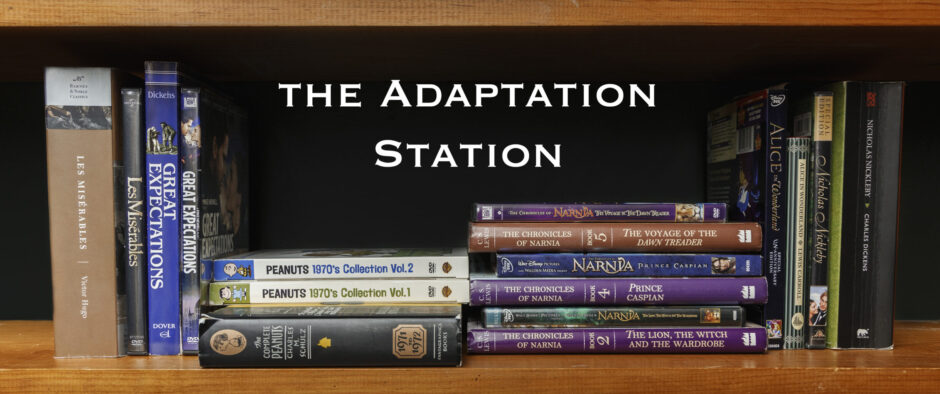The Life and Adventures of Nicholas Nickleby (2002)

The 2002 Nicholas Nickleby movie, written and directed by Douglas McGrath, makes an interesting counterpoint to the 1947 one. It doesn’t include nearly as many of the novel’s characters, but it arguably takes fewer liberties with the ones it does include[1]and one of them is John Browdie (Kevin McKidd)! and with the plot. And while it’s obviously a less complete and comprehensive adaptation than the 1982 televised play, it captures much more of the book’s high spirits, which were somewhat drowned by that adaptation’s gloom and pretension.[2]Not that there wasn’t plenty of gloom in the book or that there wasn’t comedy in the play.
This film easily has the highest number of the greatest character portrayals in any Nicholas Nickleby, starting with Christopher Plummer’s performance as Ralph. I know I said that John Woodvine was the best Ralph Nickleby in my last post. What I meant was that he did the best job recreating the character from the book. Plummer gives Ralph a bit too much of a sense of humor at times, the actor’s own personality is clearly in evidence. On its own terms, I would say Plummer’s Ralph is the greatest.
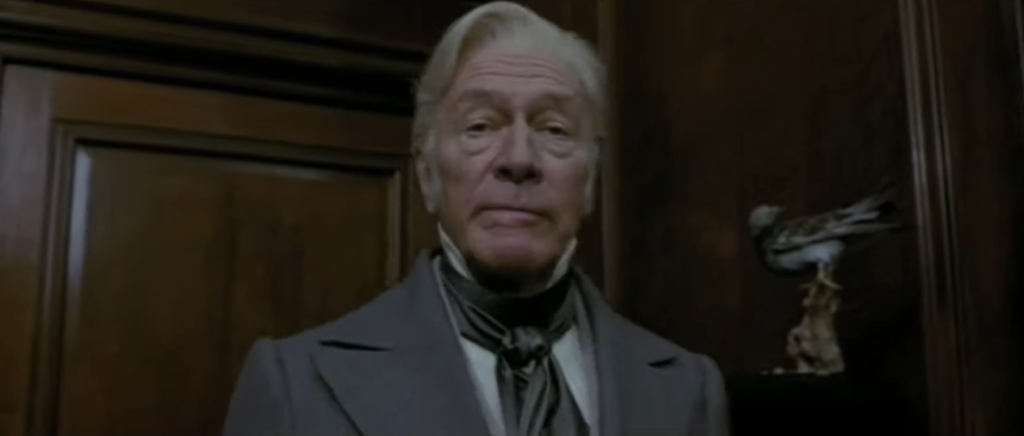
Jamie Bell is also the greatest Smike, doing a full-body cringe throughout the early part of the movie as if he expects to be beaten at any moment and making every rare time that he smiles heartwarming. I know I said that by giving the character a harder time speaking, the 1982 Nicholas Nickleby actually improved on the source material, so technically, I suppose, David Threlfall’s Smike was the best. But Jamie Bell’s is the best Smike as Dickens imagined him.

Jim Broadbent is also the greatest Wackford Squeers. Too many actors, including the usually great Alun Armstrong in 1982 version, make the character obviously unpleasant, while Broadbent displays a greasy faux charm. Juliet Stevenson is a perfect foil for him as Mrs. Squeers. This adaptation best captures the book’s description of the two. “The fact was, that both Mr. and Mrs. Squeers viewed the boys in the light of their proper and natural enemies; or, in other words, they held and considered that their business and profession was to get as much from every boy as could by possibility be screwed out of him. On this point they were both agreed and behaved in unison accordingly. The only difference between them was, that Mrs. Squeers waged war against the enemy openly and fearlessly, and that Squeers covered his rascality, even at home, with a spice of his habitual deceit; as if he really had a notion of someday or other being able to take himself in, and persuade his own mind that he was a very good fellow.”
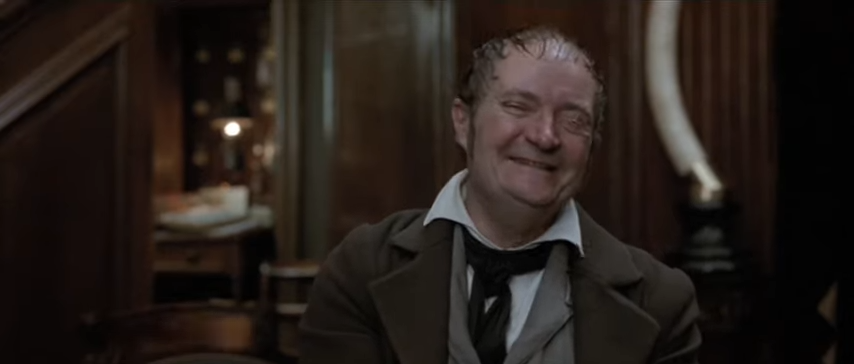
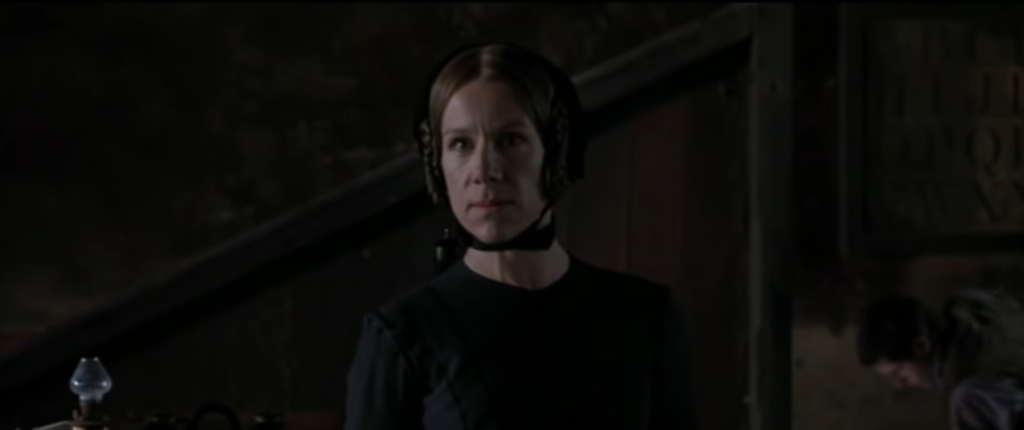
Heather Goldenhersh is also great as their daughter, Fanny, and it’s sad that this adaptation doesn’t have time to do more with her.
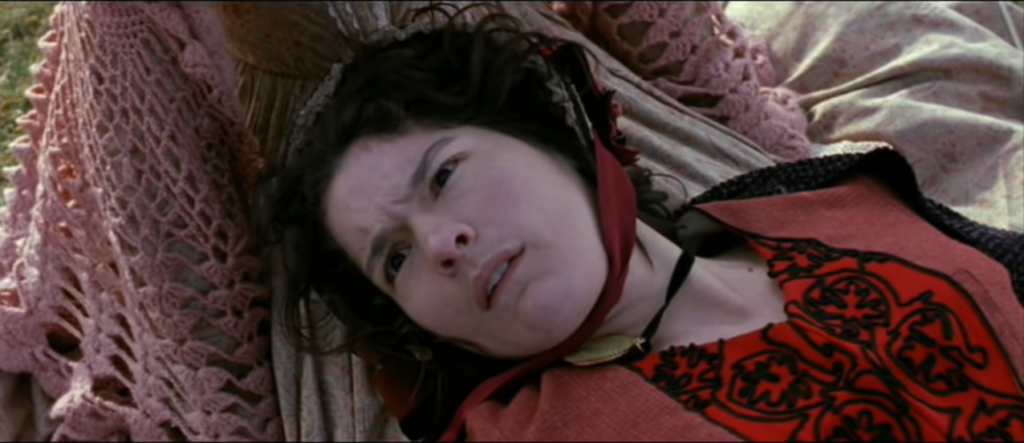
Nathan Lane is the funniest Vincent Crummles and while I’m not a big fan of having his wife be a cross cast role, Dame Edna Everage AKA Barry Humphries definitely brings a Dickensian flair to it.
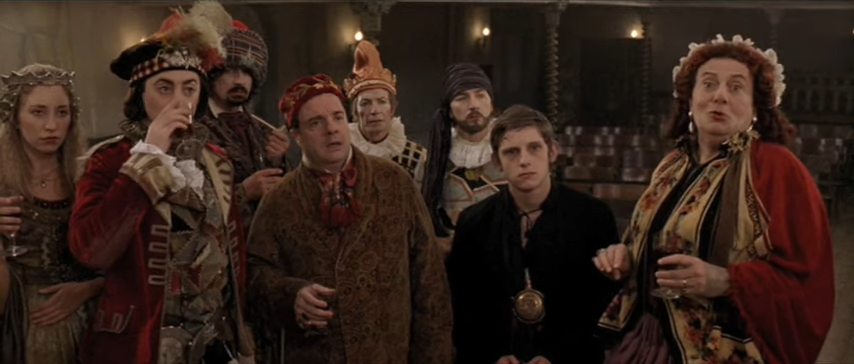
Romola Garai and Anne Hathaway vanish into the roles of Victorian-style heroines, Kate and Madeline.

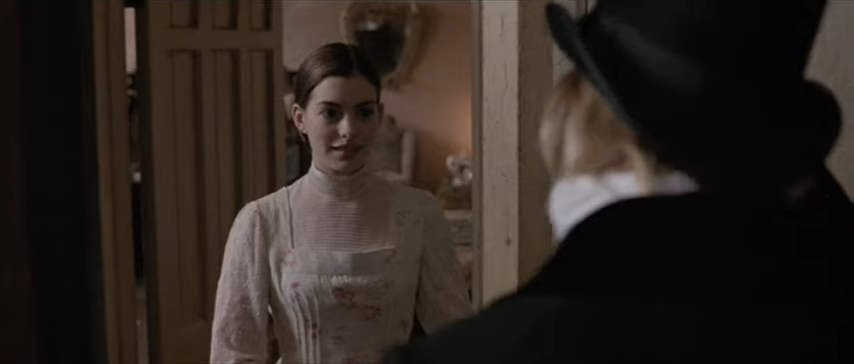
Tom Courtenay brings an almost unprecedented tragic dignity to Newman Noggs while also delivering on spot-on comedic timing when called upon to do so.
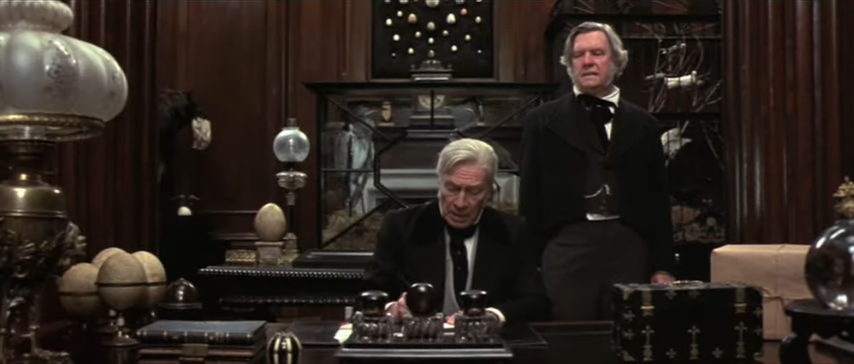
As a matter of fact, there’s only one bit of casting that isn’t perfect in this movie and unfortunately, it’s a pretty big one: Charlie Hunnam as Nicholas. He has more trouble than the rest of the cast with the stagy dialogue, something this adaptation embraces unlike the 1947 movie, and comes across as a bit stiff. His best moments tend to be wordless. He isn’t a disaster or anything, but he doesn’t give the definitive take on his character as just everybody else here does.
Longtime readers may remember me praising the 2008 Little Dorrit miniseries for how its sets aided the storytelling and furthered the characterizations. Eve Stewart’s production design in this Dickens adaptation does much the same thing more subtly. Ralph Nickleby’s chilly home/office, the bleak, Spartan Dotheboys Hall, Vincent Crummles’s tacky caravan, and Miss La Creevy (Sophie Thompson)’s cheerfully eccentric abode all reflect the personalities of their owners. As screenwriter and director, McGrath has a gift for economic visual storytelling. In one shot, he memorably conveys Nicholas’s struggle to find a good job, something that takes a number of chapters in the book and would normally take a montage in a movie.
If this adaptation has a major drawback, it’s that, just as in his Emma McGrath underdeveloped Frank Churchill and Jane Fairfax compared to Harriet Smith and Mr. Elton, here he underdevelops Kate Nickleby and Madeline Bray’s stories compared to those of Nicholas and Smike.[3]Well, Madeline is arguably made more important to the story in that it’s established very early in the movie that Nicholas is seeking a helpmate, but she’s not developed as much as a … Continue reading Because of this Madeline’s selfish father (David Bradley) loses what nuance and depth he had in the book and other slower paced adaptations.[4]And for whatever reason, his name is Nigel rather than Walter. More substantially, her suppressed inheritance is missing, understandable from a pacing standpoint but it makes the movie’s final third less exciting than the first two, and it means that the Squeers family never gets its ultimate comeuppance. Without the motive provided by the inheritance, Ralph’s motive for interfering in Madeline’s life also becomes solely to spite Nicholas, which seems out of character for such a calculating businessman. [5]The movie suffers a bit here from not being able to include the information given by the narrator in the book that Nicholas reminds Ralph of his brother (Nicholas’s father) who was always … Continue reading Still, what we do get of Kate and Madeline’s plot is very well done. They’re certainly more developed than Mrs. Nickleby (Stella Gonet) who only has a few lines of dialogue. If you’re familiar with the book, you’re probably having a mental breakdown right now over the idea of Mrs. Nickleby not saying much. Miss La Creevy doesn’t have many lines either, but, for the record, I feel she comes across as less generic here than in the 1947 film where she had more screentime. The script at least tries to give her a personality by making everything she says have to do with art somehow, which…all right, it’s not really a personality, but it’s something.
This adaptation may not do justice to every character or subplot from the novel, but the ones it does focus on have ample time to breathe that they don’t always get in more comprehensive Nicholas Nicklebys. Of all the Dickens adaptations, this is one of the most-if not the most-fun and engaging to watch. It’s hilarious, tearjerking, exciting, romantic and heartwarming, everything people should, but too often don’t, expect a Charles Dickens movie to be.
The Life and Adventures of Nick Nickleby (2012)
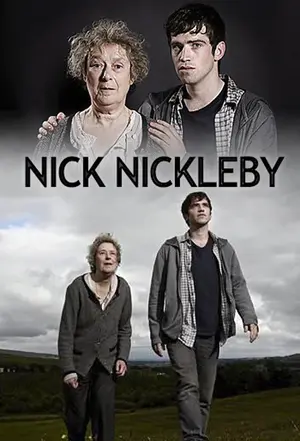
This miniseries, written by Joy Wilkinson and Dominique Moloney (mostly Wilkinson) and directed by David Innes Edwards, that reimagines Nicholas Nickleby as taking place in modern times is arguably less a retelling of Dickens’s story and more its own story, so it arguably shouldn’t be on this list. But I enjoy it too much to leave it out. The starting point is much the same. Nick (Andrew Simpson),[6]I don’t really like that nickname. Nick Nickleby sounds like stuttering. his sister, Kat (Jayne Wisener)[7]Do people not use Kate anymore? and their mother (Bronagh Gallagher) journey from Devon to London upon the death of their father/husband to ask Ralph Nickleby (Adrian Dunbar), the uncle/brother-in-law they’ve never met, to help them buy back their repossessed farm. Outside his office, Kat meets oligarch Vladimir Hawkovsky (Gerry O’ Brien), who learns her identity. Ralph needs Hawkovsky to provide him the capital for a lucrative deal that will put him in charge of every care home in the UK. Privately, Hawkovsky tells him he’ll sign the necessary papers-if he gets to sleep with Kat. (Note that Hawkovsky looks like he’s fifty and Kat is seventeen.) Ralph immediately changes his tune about helping the Nicklebys. He puts Kat and her mother up at his gentlemen’s’ club and, to get him out of the way, gives Nick a job at Dotheolds Hall, his flagship care home in Yorkshire. After seeing the abusiveness of the home, Nick ends up on the run with longtime resident, Mrs. Smike (Linda Bassett.)
The series’ story is much tighter and more suspenseful than the novel’s, with the ticking clock of Nick needing to expose the abuse at Dotheolds Hall before Ralph’s deal is finalized. (With the modern setting, making part of the plot bringing the abuse to the attention of authorities was pretty much inevitable.) In the book, Nicholas’s main goal of finding a way to financially support his family is basically resolved two thirds of the way through, though of course more conflicts keep popping up.[8]Similarly, in Oliver Twist, Oliver’s main problem of needing a good home is resolved two thirds of the way into the book, though his origins still need to be explained and there’s plenty … Continue reading Still, the series does try to include many of the novel’s most memorable scenes and more quotes from the book are included in the dialogue than you’d think, particularly in Ralph’s.
The characterizations are a mixed bag as far as faithfulness goes. Mrs. Smike is much more competent and on-the-ball than Smike ever was, in keeping with modern expectations of how a disabled character should be portrayed. (Along similar lines, three elderly residents of Dotheolds, Mr. Cobbey (James Greene), Mrs. Graymarsh (Barbara Adair) and Mr. Bolder (Howell Evans), whose names come from the book, play an active role in the series’ plot.) I feel like this lessens Nicholas’s heroism in helping her somewhat. There’s a scene where Mrs. Smike offers to part ways with Nick, just like Smike did with Nicholas in the book, so as not to be a burden, but it’s clear that Mrs. Smike is as much an asset to Nick’s journey. Still, I do enjoy her character.
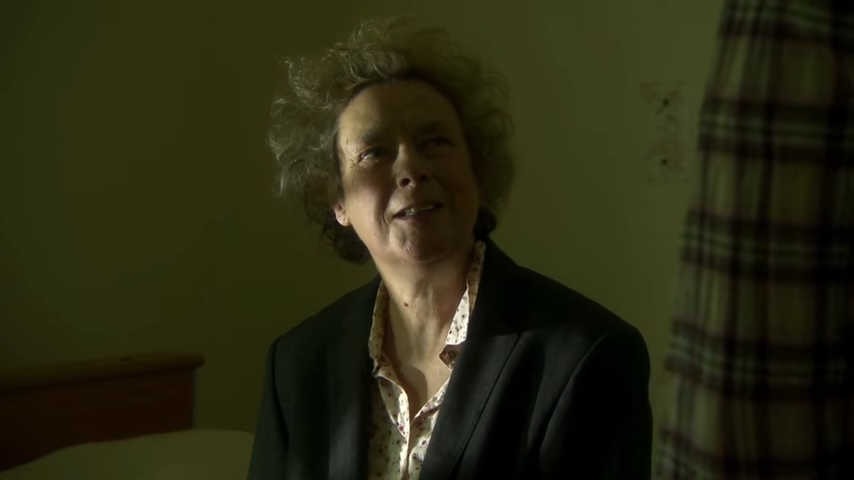
Madeline Bray (Caitlin Joseph)’s ailing father (Ranjit Krishnamma) now actively pleads with his daughter not to get married just to support him. This is obviously a monumental about-face for the character, but it makes thematic sense given how this version makes Dotheboys Hall an abusive home for the elderly rather than an abusive boarding school for boys, turning a good-young-people-vs-evil-old-people story into one about the responsibilities of youth towards their elders, though it’s true enough to the source material that there’s still a lot of young heroes pitted against old villains. (You’d have to be really, really unfaithful for there to be none.) Mrs. Nickleby is also a much more competent guardian to her children, relatively speaking, but she’s funny and annoying in the same way she is in Dickens. Maybe not as funny, but funny enough. There’s a family called Khenwigs in the series, but they don’t really correspond to the Kenwigses from the book and there’s a character called Verishopht (Laurence Kennedy), but it would have been more accurate to name him Snawley.
The most distracting changes to a character, for me as a Nicholas Nickleby fan, involve Kat who is far less idealized than Kate. She’s less inclined to believe her brother when he defends himself against charges of criminal behavior and is more easily manipulated by the villains. Kate, actually, wasn’t manipulated at all unless you count her being more inclined than Nicholas to initially give their uncle the benefit of the doubt. At one point, it even looks like she’s going to give her predator what he wants if it will help her family, something Madeline Bray might have considered in the novel, but definitely not Kate Nickleby. I’m less upset over this literary character assassination than you might think I’d be though, because I understand what the miniseries is doing. As Charles Dickens was writing about how women were sexually objectified at too young an age in his culture, this adaptation is exploring how that is a problem in our modern culture, where young girls are sometimes manipulated into associating sexual objectification with glamour and independence, even when, as in this case, it’s really not what they themselves desire.
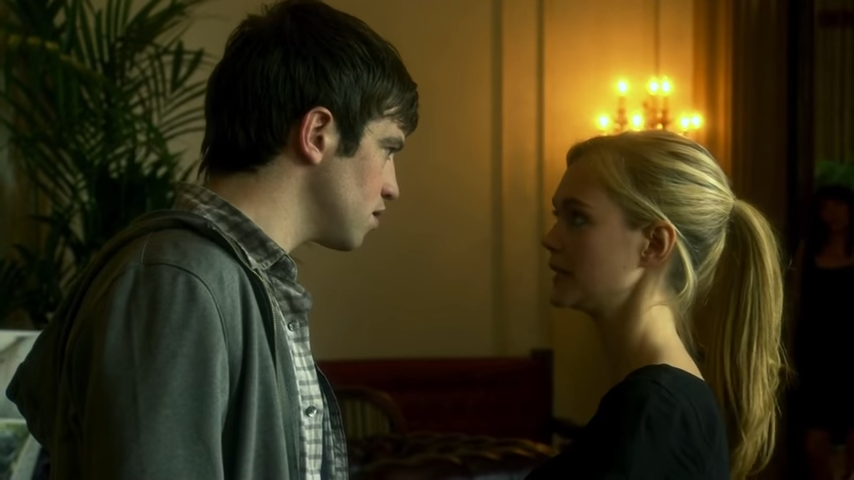
Happily, there are plenty of characters who are just like their literary counterparts. Adrian Dunbar makes a great Ralph Nickleby.
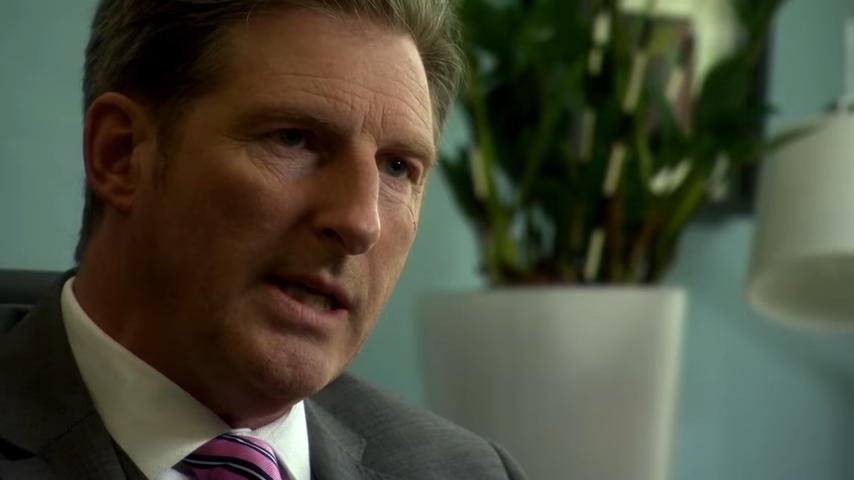
In fact, all the casting is great despite, or perhaps because of, a lack of big-name actors. The various grotesques feel like they could have stepped right off the page. Mark McDonnell is actually my second favorite Wackford Squeers, Jim Broadbent being first. For the sake of simplicity, all of Squeers’s family members are combined into one, his daughter, Frannie (Hollie Taylor.) Fortunately, she’s more than up to the task.
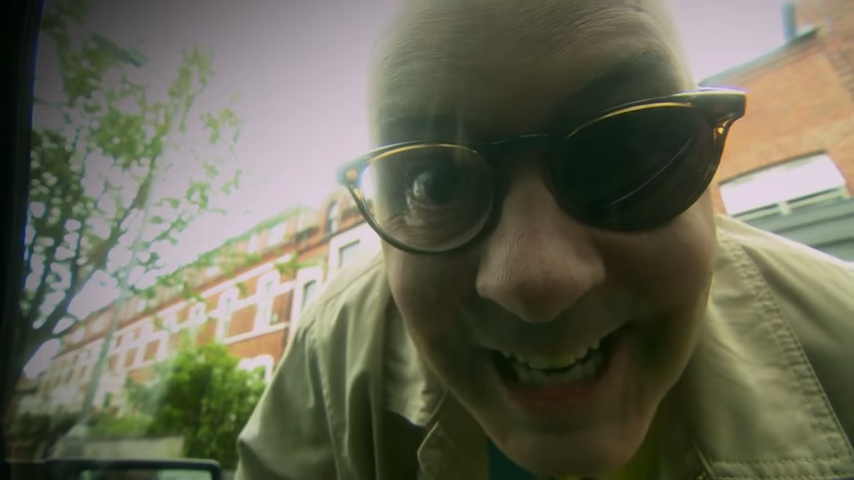
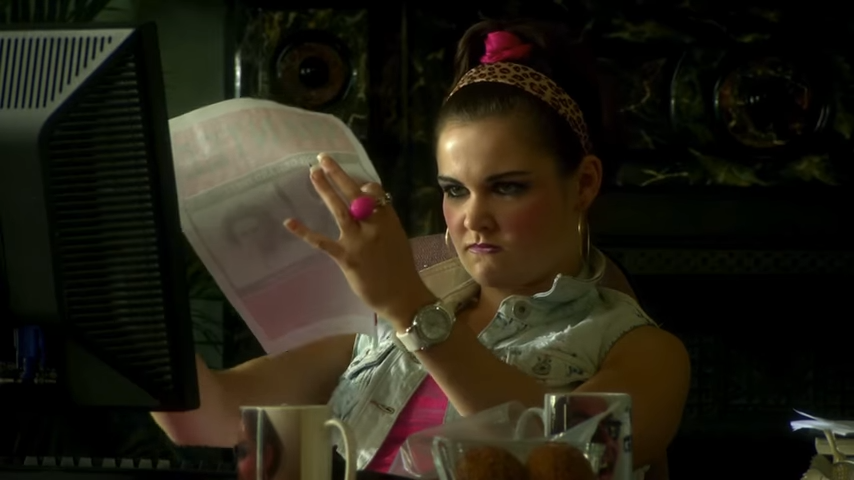
Gratifyingly, Andrew Simpson’s Nick perfectly embodies Dickens’s impetuous but noble hero. Madeline Bray-or Maddy Bhray as they call her-also feels just like the book character[9]Well, Dickens wouldn’t have had her have a child out of wedlock since such a thing would be considered very immoral in his culture, but apart from that, I mean. and so does her love-at-first-sight romance with Nick.
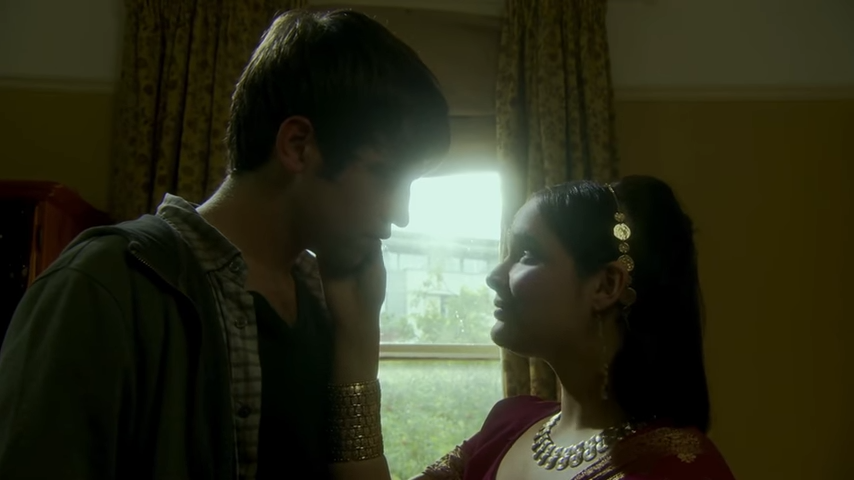
My biggest problem with this adaptation is the way it has Ralph be framed for a crime he didn’t commit in the climax. The equivalent of this plot point in the book was an actual crime he committed being unearthed. For what it’s worth, it’s the more ambiguous characters who do the framing, not the heroes, but it does seem like we’re supposed to be rooting for them at this point. (In neither the book nor the series is Ralph actually arrested.) Speaking of which, an even bigger problem might be that if the series wanted to redeem Ms. Knag (Anna Wilson-Jones), a character named after one from the book but who is original for all practical purposes, it needed a lot more time to do so than it gives itself, considering what she almost does to Kat towards the end of Episode 3, something that frustratingly is worked into the plot too well for me to imagine a version without it.
For all the liberties it takes with the story and even the characters, I had to rank this Nicholas Nickleby as one of my top 4. It’s a fairly easy parlor trick to take a Dickens book and reimagine it taking place in the modern day. People do it regularly with A Christmas Carol and it’s been done a couple of times with Great Expectations. The themes of greed and selfishness vs. generosity and selflessness are universal. But it’s not so easy to make something that actually feel like it’s what Dickens would write were he living today. This reimagining actually accomplishes that in a way none other I can recall does. Its humor, its sentiment, and its melodrama all feel Dickensian yet modern. For that, I believe it deserves a wider audience than it’s gotten.
Conclusion
Which of these four Nicholas Nickleby adaptations is my favorite? The 2002 one.
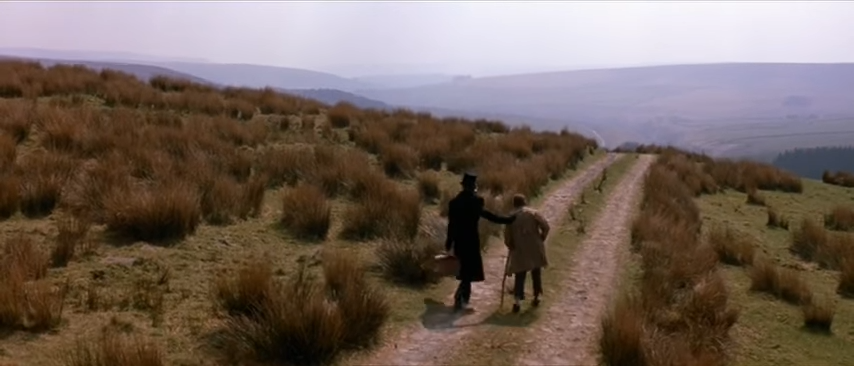
It may not include as much from the book as some, but it’s the only one that I recommend to those who aren’t already fans of the material, confident that they’ll enjoy it and just maybe be inspired to give the novel a try. All four of these adaptations do a great job of conveying Dickens’s message, which is best summarized by the following quote from 1999 miniseries Arabian Nights written by Peter Barnes.[10]That may seem like a really random thing with which to end, but Dickens was actually a big fan of One Thousand and One Nights growing up. OK, it is random, but this is my blog, my rules.
…The world (is) an inferno, full of darkness and wickedness and there (are) two ways of dealing with it, one easy and wrong, to accept it and become part of it, the other harder and right, to fight it and recognize those who aren’t evil and help them endure.
References
| ↑1 | and one of them is John Browdie (Kevin McKidd)! |
|---|---|
| ↑2 | Not that there wasn’t plenty of gloom in the book or that there wasn’t comedy in the play. |
| ↑3 | Well, Madeline is arguably made more important to the story in that it’s established very early in the movie that Nicholas is seeking a helpmate, but she’s not developed as much as a character in her own right. |
| ↑4 | And for whatever reason, his name is Nigel rather than Walter. |
| ↑5 | The movie suffers a bit here from not being able to include the information given by the narrator in the book that Nicholas reminds Ralph of his brother (Nicholas’s father) who was always compared favorably to him. |
| ↑6 | I don’t really like that nickname. Nick Nickleby sounds like stuttering. |
| ↑7 | Do people not use Kate anymore? |
| ↑8 | Similarly, in Oliver Twist, Oliver’s main problem of needing a good home is resolved two thirds of the way into the book, though his origins still need to be explained and there’s plenty of drama with the other characters. Most adaptations change this. |
| ↑9 | Well, Dickens wouldn’t have had her have a child out of wedlock since such a thing would be considered very immoral in his culture, but apart from that, I mean. |
| ↑10 | That may seem like a really random thing with which to end, but Dickens was actually a big fan of One Thousand and One Nights growing up. OK, it is random, but this is my blog, my rules. |
